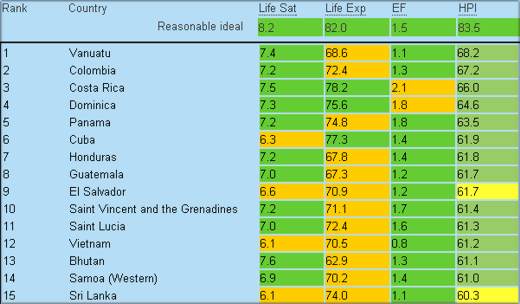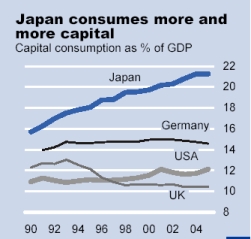 Modern economics and Religion
Modern economics and ReligionTo an outsider, particularly to one connected with the world of spirituality, an economist is essentially an atheist. It is a fact that well known economists have dismissed religion and spirituality in varying degrees of vehemence. Karl Marx’s statements holding religion as people’s opium is fairly well known. One of 20th Century’s most influential economists, John Maynard Keynes is often regarded as opposed to the traditional ideas of morality. He is quoted as having said: I remain, and will always remain, an immoralist”.
However, present-day economists do not dissociate themselves from larger questions such as ethics, welfare and spiritual well being of mankind.
The new mantra of economics, particularly welfare economics, is sustainable development. Development that exploits resources might lead to sporadic development, but such development is not permanent.
Growth Economics and Welfare EconomicsEventually, the centrepiece of all economic activity is Man, and the happiness of man. The traditional view of the economist, which shapes all economic policy and literature, is that economic growth is synonymous with welfare, as the only way to promote economic well being of the society is by well distributed economic growth. Of course, growth cannot keep aside the important aspect of egalitarian distribution of economic resources. The primary motives of all economic activity is health, food and satisfaction of basic needs which is not possible without economic growth. This is why economic growth is measured in terms of gross domestic product (GDP).
However, economic growth is not necessarily accompanied by welfare. A new branch of economics developed called “welfare economics” – this focuses not just on economic growth but also on the allocation efficiency of growth, that is, distribution. Distribution is justice. Welfare economics looks at individual as a unit, instead of a society or a group. Accordingly, there are two aspects of welfare economics – the positive side (that is, the total economic welfare achieved) and the normative side (that is, the distribution of economic growth. The ideal distribution of economic resources is referred to as Pareto efficiency or optimality.
Sustainable Development: The Stress on EnvironmentWhile economists of the past were primarily concerned with growth and distribution, the overriding concern of last, which will very clearly remain the stress in time to come, will be sustainable development. In a way, the concern for sustainable development is also one of distribution – the distributive justice that neoclassical economists have talked about it distribution across the masses. Sustainable development concerns itself with distribution over time, that is, we cannot ignore future generations. Any economic activity that exploits resources at the cost of future generations should be detested. Development should not only be focused at the present generation, but should look at the posterity – hence, the concept of sustainable development.
Countries of the World in rank HPI order

http://www.happyplanetindex.org/list.htm
[ go to check complete list of 174 countries and more informations]
The simplest understanding of the concept of sustainable development is as follows – if, in pursuit of our need for wood, we fell trees, we would possibly enjoy the resources today and may not feel the adverse impact of deforestation during our life time, but we are doing so at the cost of planet earth. Leading economist J R Hicks argued long time back that we need to distinguish between income and depletion of capital. Like in case of any business, resources may flow in not as a result of current operations, but as a result of depletion of assets.
The thrust on sustainable development is so strong that United Nations has dedicated a complete division called United Nations Division for Sustainable Development [ http://www.un.org/esa/sustdev/ ].
Green Economics and Alternative Measures of Economic WelfareSince GDP as a measure of economic growth fails to take into account the depletion of national capital and natural resources, green economists propounded a new measure of measuring economic growth called Genuine Progress Indicator.

One of the major limitation of GDP is that it fails to capture the depletion of capital. Japan, for instance, annually depletes a substantial part of its resources as the country, faced with limited resources, has to constantly keep consuming its resources. GDP also ignores non-monetary transactions, which are extremely important for human happiness.
Nobel laureate James Tobin and William Nordhaus highlighted in the early 1970s that “GDP is not a measure of welfare” and proposed a Measure of Economic Welfare (MEW) that adds to GNP the value of household services and leisure, subtracts the cost of capital consumption and of “bads” such as pollution, and excludes for example police services to combat crime.
International bodies like the Organisation for Economic Development and Growth (OECD) have also been considering alternative measures of national development. In 2005, OECD released a publication called Going for Growth, which has been repeated in 2006 as well.
The United Nations also comes up with an index called Human Development Index. The slant of this index is more towards quality of life – so it focuses on items like education, health, life expectancy, etc.
A certain foundation in UK publishes an index called Happy Planet Index. This report centres on how long people live and how happily, and what damage they do to the environment.
Genuine Progress Indicator is a measure monitored by a private initiative in the US called Redefining Progress. It is essentially a material measure but takes into account factors like household work, value of services of consumer durables etc into account, and subtracts loss of wetlands, depletion of non-renewable resources, etc.
From Economic Measures to Happiness: Gross National HappinessEssentially voicing the growing concern that it is not economic growth merely that defines the basic objective of mankind – happiness, a new concept has come up – gross national happiness (GNH). The term was coined from a country very near – Bhutan’s king J S Wangchuck in 1972. Not surprisingly, the idea was based on Budhist philosophy that it is not monetary wellbeing that brings happiness. The four pillars of GNH are the promotion of equitable and sustainable socio-economic development, preservation and promotion of cultural values, conservation of the natural environment, and establishment of good governance.

There are several estimates of happiness – like the Happy Planet Index referred to above. Happiness in the context of economics is almost bordering between spiritual happiness and economic wellbeing, as it takes into account social relationships, leisure, the way we spend our time etc.
Daneil Kahneman, who won the 2002 Nobel Prize in economics, is a major proponent of subjective methods of national happiness, which he prefers to call “subjective wellbeing”. Kahneman’s assessment of happiness observes the way the respondent spends his/her day and what gave maximum happiness. An idea of the time spent on several things, and the happiness derived, can be had from the Table of The Affect of Activities.
Synthesis of Religion and EconomicsVery clearly, religion and economics are converging. While the traditional classical concept of welfare was “utility” which was seen entirely as materialistic, the alternative measures of welfare discussed above all focus of intangibles which are largely non-material in nature. There is an increased focus on “happiness”, which has been the traditional domain of philosophy rather than economics.
The other clear reason for the synthesis between concerns of economists and philosophers is the shift away from short-term policies to long term. The moment economists move their short vision to secular issues like environment, planet earth, etc., there is a merger of economics and philosophy, because very long-term co-existence of man and nature lies only in curtailment of wants.
Jain philosophy is essentially the philosophy of co-existence – co-existence of all living beings, and that of all non-living beings. All livings beings are treated as equal, and exploitation of even non-living beings is avoidable. Earth, water, fire and vegetation are containing living beings, and hence, except to the extent barely necessary, their exploitation or wanton use is proscribed. Hence, the Jain view of life is extremely close to the theory of sustainable development to which present day economics is apparently converging.
Back to:
Jain Philosophy And Modern Economics - Conflict Or Complimentarity [1]
 Vinod Kothari
Vinod Kothari